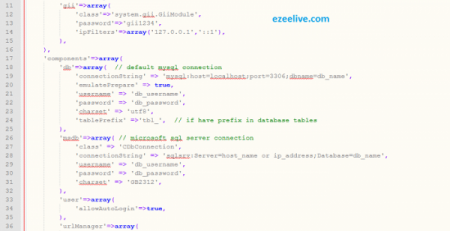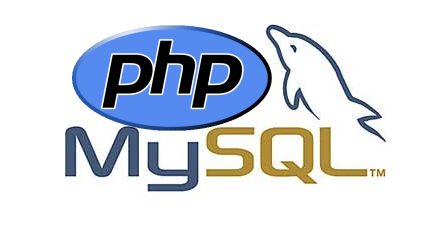MySQL versus MongoDB Database – Which one is winner and looser based on performance
When MongoDB comes to mind then everyone starts thinking that it’s just a NoSQL database but no one thinks that why it was developed and what its benefits over the MySQL.
In this Article, we will first demonstrate that what these both things are i.e MySql and MongoDB because MongoDB is little new so we have first read about its definition.
MySQL Database:
MySQL is an open source relational database management system (RDBMS) which is based on Structured Query Language (SQL).
MySQL virtually runs on all platforms like LINUX, WINDOWS, MAC etc. MySQL is most often associated and used with the most web applications and open source system like the LAMP. Now the MySQL is covered by the ORACLE from 2008.
MongoDB Database:
The NoSQL is the replacement of the 40 years old relational database management system to use with modern web application development and also on all web applications increasing number of demand also the headache of the developers so they got the option to handle all things like Big User, Big Data, Cloud Computing and internet things with the MongoDB which is example of the NoSQL.
Difference between the MySQL and MongoDB:
In this part we will discuss the key parts of the differences between these two databases:
- SQL databases are the table based databases means it stores the data in the row and column based format whereas the NoSQL stores the data in the document format like in the key-value format or graph format.
- If the number of user’s data stored in the MySQL then it takes much time to response in other hand MongoDB does not take much time as compared to SQL to respond effectively.
- For the big data storage, SQL is less preferred language as compared to MongoDB because it stores the data in key-value pair format so the execution time is also very fast.
- MongoDB stores the data in the JSON format so it gives the results in the well-structured format with more flexibility and superior read and writes format.
Is MongoDB always Perform better than MySQL?
This is another classical question which you developers coming across, but this questions just to answer with YES or NO? Do you think that just saying this will be good for the 40 years old database and say yes to just a few years of the database? We will try to find out this here after searching for many things.
MongoDB is getting very popular in the market because of its many features and it is database structure which it stores in JSON. But what the real thing behind this :
A. How does MySQL process queries?
The MySQL database was developed when the web application development was on the verge of its starting getting popular with the normal people so it has the very old technique to process the data and execute the data.
It does not use the multiple threads to boost the performance it means when you want to process the multiple queries to get the high-end result at that time it processes only some queries and rest keep as it is.
After the first several queries result from it process remaining queries. So it takes time to show the full result which if you will see according to the user’s points of view they will never like it.
B. How does MongoDB process queries?
The internal execution of the MongoDB is completely different than the MySQL. Here I will compare only one thing about these two just be careful on this point.
In MongoDB, all the queries are not processed simultaneously. This means that all the write queries which are sent to the MongoDB server will be queued. From this smart technique, the execution time is far much better than the MySQL.
Conclusion:
As I saw all the pros and cons or MySQL versus MongoDB Database about these two things we found that MongoDB is doing good in all aspects like in storing data, processing of data, executing the query etc.
So I can say that the MongoDB is the winner and MySQL is looser but every developer has its own circumstances and usage they may feel good and more comfortable with the MySQL. It all depends on your type of usage and what the technique you can use to more simplify your code.









Comments (2)
I think it is a bit more difficult to make a statement stating that one database is better than another, even if only in terms of speed.
For starters, MongoDB is not relational, which means that you will be de-normalising data by default, which also means that in general you will need more storage space and will probably have larger indexes. This de-normalisation, however has a 16MB. limit, beyond which you will have to do some sort of “soft” relational work. Relating collections in MongoDB must be done by the database client: the closer you get to the core code (C++ versus PHP, for instance) the faster it will get, but it then becomes not trivial.
The other think to keep in mind id that MongoDB is more efficient (or greedy?) in terms of memory management: you will see that out of the box it will take any memory it can find. MySQL, on the other hand, has tons of parameters to fine-tune resources consumption, which means that to fairly compare both databases should also involve a lot of optimisation in MySQL configuration.
Another area which I think should be stressed is flexibility and usability. If you have a huge MySQL database and you need to add a field to a table, then… good luck, it might take ages. MongoDB, on the other hand, does not need to abide to a structure, so you can store what you want at any time.
Finally, MySQL supports transactions, while MongoDB not (yet?). this has to be developed ad-hoc and taken into account when benchmarking transactions.
I have personally switched to MongoDB since a couple of years, I still use MySQL for doing simple data manipulation tasks, then I port everything to MongoDB as the final database. I mainly switched because of the freedom MongoDB provides with structures and because of its speed, which is something that this database definitively delivers on.
Nice blog! Thanks for sharing such a blog.